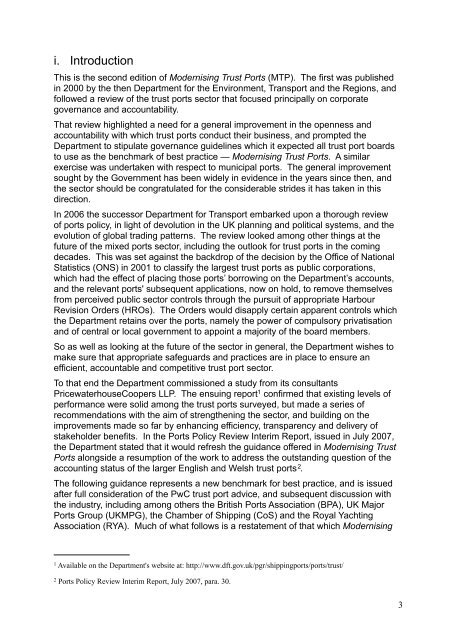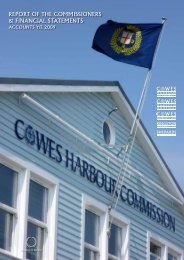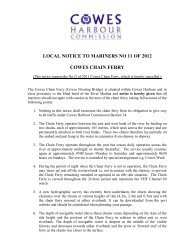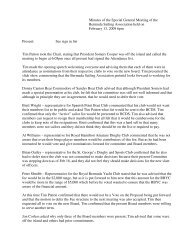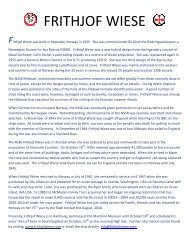Modernising Trust Ports 2nd Edition.pdf - SailingNetworks
Modernising Trust Ports 2nd Edition.pdf - SailingNetworks
Modernising Trust Ports 2nd Edition.pdf - SailingNetworks
You also want an ePaper? Increase the reach of your titles
YUMPU automatically turns print PDFs into web optimized ePapers that Google loves.
i. IntroductionThis is the second edition of <strong>Modernising</strong> <strong>Trust</strong> <strong>Ports</strong> (MTP). The first was publishedin 2000 by the then Department for the Environment, Transport and the Regions, andfollowed a review of the trust ports sector that focused principally on corporategovernance and accountability.That review highlighted a need for a general improvement in the openness andaccountability with which trust ports conduct their business, and prompted theDepartment to stipulate governance guidelines which it expected all trust port boardsto use as the benchmark of best practice — <strong>Modernising</strong> <strong>Trust</strong> <strong>Ports</strong>. A similarexercise was undertaken with respect to municipal ports. The general improvementsought by the Government has been widely in evidence in the years since then, andthe sector should be congratulated for the considerable strides it has taken in thisdirection.In 2006 the successor Department for Transport embarked upon a thorough reviewof ports policy, in light of devolution in the UK planning and political systems, and theevolution of global trading patterns. The review looked among other things at thefuture of the mixed ports sector, including the outlook for trust ports in the comingdecades. This was set against the backdrop of the decision by the Office of NationalStatistics (ONS) in 2001 to classify the largest trust ports as public corporations,which had the effect of placing those ports’ borrowing on the Department’s accounts,and the relevant ports' subsequent applications, now on hold, to remove themselvesfrom perceived public sector controls through the pursuit of appropriate HarbourRevision Orders (HROs). The Orders would disapply certain apparent controls whichthe Department retains over the ports, namely the power of compulsory privatisationand of central or local government to appoint a majority of the board members.So as well as looking at the future of the sector in general, the Department wishes tomake sure that appropriate safeguards and practices are in place to ensure anefficient, accountable and competitive trust port sector.To that end the Department commissioned a study from its consultantsPricewaterhouseCoopers LLP. The ensuing report 1 confirmed that existing levels ofperformance were solid among the trust ports surveyed, but made a series ofrecommendations with the aim of strengthening the sector, and building on theimprovements made so far by enhancing efficiency, transparency and delivery ofstakeholder benefits. In the <strong>Ports</strong> Policy Review Interim Report, issued in July 2007,the Department stated that it would refresh the guidance offered in <strong>Modernising</strong> <strong>Trust</strong><strong>Ports</strong> alongside a resumption of the work to address the outstanding question of theaccounting status of the larger English and Welsh trust ports 2 .The following guidance represents a new benchmark for best practice, and is issuedafter full consideration of the PwC trust port advice, and subsequent discussion withthe industry, including among others the British <strong>Ports</strong> Association (BPA), UK Major<strong>Ports</strong> Group (UKMPG), the Chamber of Shipping (CoS) and the Royal YachtingAssociation (RYA). Much of what follows is a restatement of that which <strong>Modernising</strong>1Available on the Department's website at: http://www.dft.gov.uk/pgr/shippingports/ports/trust/2<strong>Ports</strong> Policy Review Interim Report, July 2007, para. 30.3


